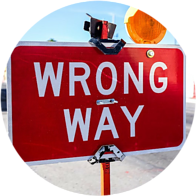Let’s face it; parenting is hard. It sucks sometimes. Are you like me who can get overwhelmed or irritated? Do you plan and organize only to have things go array and you are left feeling unaccomplished or unsuccessful. Do you feel like a failure?
Rest assured that we have all been there. Parenting coupled with parenting a dyslexic child or a child with any learning disorder can leave you feeling defeated. This is especially so if you had in your mind worked out plans for schooling, career, interests and so forth. Today, we will touch on common mistakes to make with your dyslexic child, how these can affect your child and suggestions on alternatives.
Turn a Blind Eye
This one can be a quick and easy go to. Can a problem go away if it is ignored long enough? Probably not.
Learning disorders should not be ignored. The cost of this is too great. Studies have shown that ignoring dyslexia can result in your child falling behind, self-esteem issues and higher chances of school drop-outs.
Check out the below links that will take you to some intriguing articles on the possible effects of ignoring dyslexia.
What-happens-when-dyslexia-goes-untreated
Words of Discouragement 
Talk about putting your foot in your mouth. There are things that we should not say to a dyslexic child. Although these may not be intended to be discouraging, note that they are negative. This negativity is what your child may internalize and what will affect their self-esteem.
These are the top 3 things that I have been guilty of saying myself:
- “Don’t tell anyone / your friends about your dyslexia”
- “Try harder”
- “Stop being lazy”
Number one on this list still hurts my heart to this day and it has been several years. This happened very soon after getting the evaluation results. When the psychologist reviewed the report with us and explained some things, the last thing left to do was to inform my daughter on the findings. She was around 7 years old and I knew that she would not fully understand. My heart was breaking. After simplifying the diagnosis and trying to maker her understand what was reported and the next steps, I ended with “don’t tell anyone, even your friends”. I remember the look on her face like it was yesterday. She was confused, sad and worried. I had hurt her without fully comprehending the extent to which I was affecting her.
Months later she came to me and asked why she couldn’t tell anyone. Months. That’s when I started grasp the concept that there are very wrong things to say to your child with learning disorders and I had broken all the rules. This is when my thinking started to change.
My biggest and best advice is to use encouraging words and just be there for your child. They need support and guidance.
Worry
Try not to let anxiety and worry get the best of you. I spent too long hiding from facing the fact that my child had a learning disorder. Instead of trying to find ways to help her, I was spending time worrying and doubting that anything could be done.
Take time to come to terms with your feelings on the situation. Take time to understand and accept. In no way am I saying that you will never worry. Come on, you are a parent. Worry is a big part of it. But I would encourage you to try not to become overwhelmed.
This can add stress to your child. If they do not see positivity and hope in you then they may start doubting themselves and feeling like there is no way they can improve their situation.
Comparison
 Stop comparing your child to others. I will admit, to this day I say things like, “Why can’t you spend more time reading like your cousin……” Or, “You know he scored better than you in spelling.”
Stop comparing your child to others. I will admit, to this day I say things like, “Why can’t you spend more time reading like your cousin……” Or, “You know he scored better than you in spelling.”
I am working on it! I am!
I have been learning that comparing a child to another constantly can lead to feelings of inadequacy and development or growth of self-esteem issues. This can also damage your own relationship with your child as they can come to start resenting the comparisons.
Wrapping Up
Today we are keeping it short and simple. The above lists examples of easy mistakes and missteps that can be made. Be mindful of this. It may be worth it to take a little time out, step away from the situation before causing more damage than you could have possibly intended.
I would love to hear if you have been committed any of these common mistakes and how you recovered from it. Please share in the comments section below.

